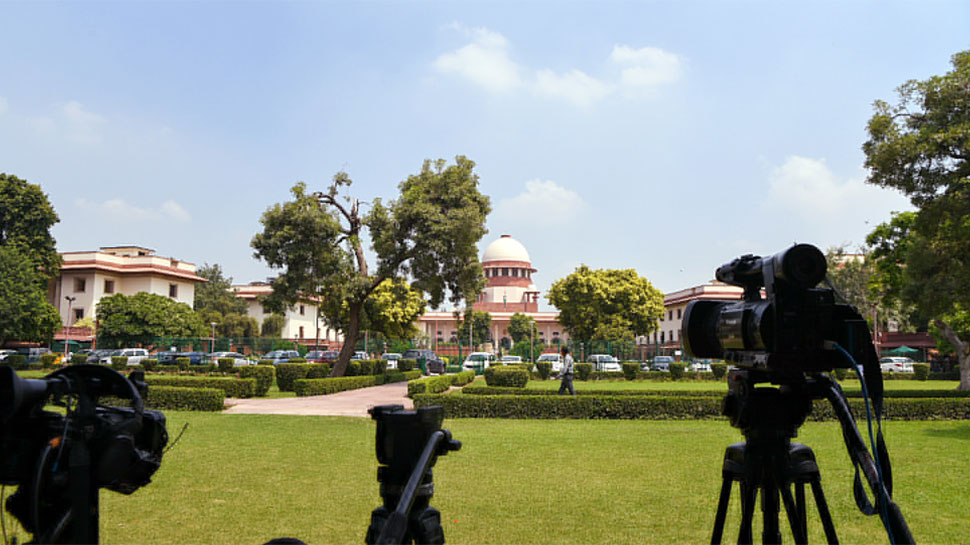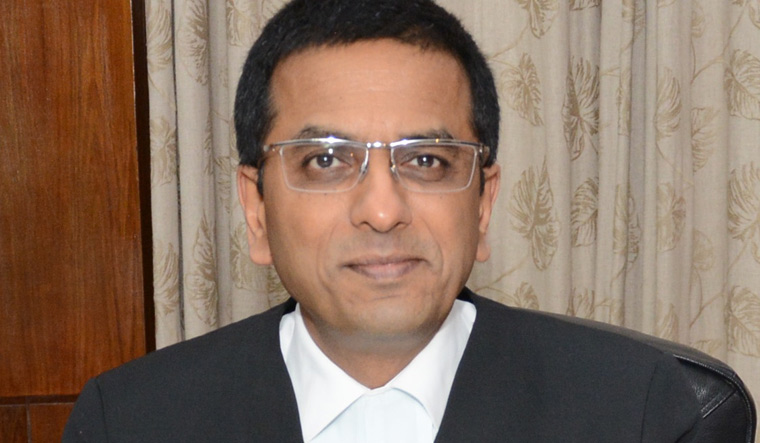Supreme Court can’t become a ‘tareek pe tareek’ court: CJI

Supreme Court can’t become a ‘tareek pe tareek’ court: CJI
Chief Justice of India Dhananjaya Y Chandrachud made a significant statement on Friday, highlighting the issue of frequent adjournments in court proceedings. He expressed concern that the Supreme Court should not become a court where cases are repeatedly postponed, referencing the term “tareek pe tareek” (a date after date). The Chief Justice disclosed that over the past two months, lawyers had requested adjournments in a staggering 3,688 cases, even though many of these cases were initially marked for urgent hearings.
CJI Chandrachud’s remarks underscore the vital importance of timely and efficient judicial processes in maintaining the trust of citizens in the country’s highest court. He emphasized that the rampant adjournments not only delay the dispensation of justice but also contribute to a loss of faith in the judicial system. The Chief Justice’s comments serve as a reminder to legal practitioners of the need for expeditious and diligent handling of cases, underscoring the significance of upholding the integrity and efficiency of the judicial system.
By addressing the lawyers directly in the courtroom, the CJI highlighted the critical role of legal professionals in ensuring the smooth functioning of the judicial process. His statement serves as a call to action for legal practitioners to actively participate in expediting court proceedings and upholding the trust of citizens in the judiciary.
Justice Chandrachud’s emphasis on the reduction of the time lag between the filing of cases and their listing before a bench in the Supreme Court signifies the court’s commitment to expediting the judicial process. He highlighted that all fresh cases are now being listed within a week of their filing, indicating a significant improvement in the efficiency of case management within the court.

However, the Chief Justice also lamented the high number of adjournments being sought in court proceedings. He disclosed that 178 adjournment slips were filed on that particular day, with an average of 154 adjournments being requested on miscellaneous days. Over the span of the last two months, a total of 3,688 adjournments were recorded, underscoring the considerable challenge posed by frequent delays and postponements in court proceedings.
The Chief Justice’s observations reflect a deep concern for the proper functioning of the judicial system and the need to maintain the integrity and efficiency of court processes. By highlighting the disparities between the timely listing of cases and the frequent requests for adjournments, Justice Chandrachud underscored the imperative for legal practitioners to uphold their commitment to expeditious and fair resolution of cases, thus ensuring that the court remains focused on its primary mandate of delivering timely justice.

Chief Justice Dhananjaya Y Chandrachud further highlighted the concerning trend of cases being mentioned by lawyers for the assignment of early hearing dates, only to be deferred when they were brought before the concerned benches. The Chief Justice disclosed that out of 2,361 cases that were initially sought to be expedited, a substantial portion were eventually adjourned, exacerbating the issue of delayed justice.
CJI Chandrachud’s remarks underscored the critical need for a more responsible and accountable approach among legal practitioners. He urged members of the bar to refrain from seeking adjournments unless absolutely necessary, emphasizing the significance of expediting court proceedings and ensuring timely delivery of justice. The Chief Justice reiterated his concern that the Supreme Court should not become a court characterized by perpetual delays, emphasizing the importance of maintaining the court’s credibility and efficiency in dispensing justice.
By calling for greater accountability and a more focused approach to handling cases, the Chief Justice aimed to reiterate the pivotal role that legal practitioners play in upholding the integrity and effectiveness of the judicial system. His plea to minimize unnecessary adjournments served as a reminder to legal professionals of their vital role in promoting a more efficient and accessible justice delivery system, free from undue delays and obstructions.




